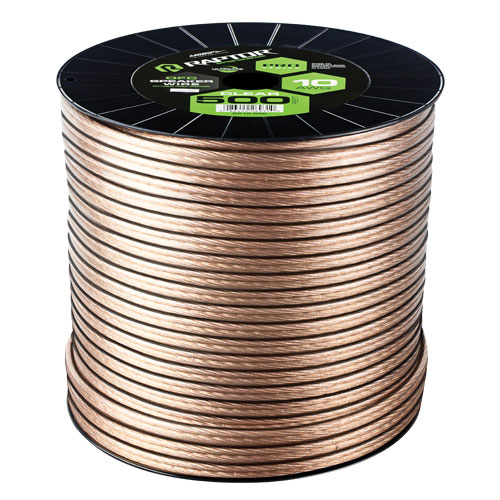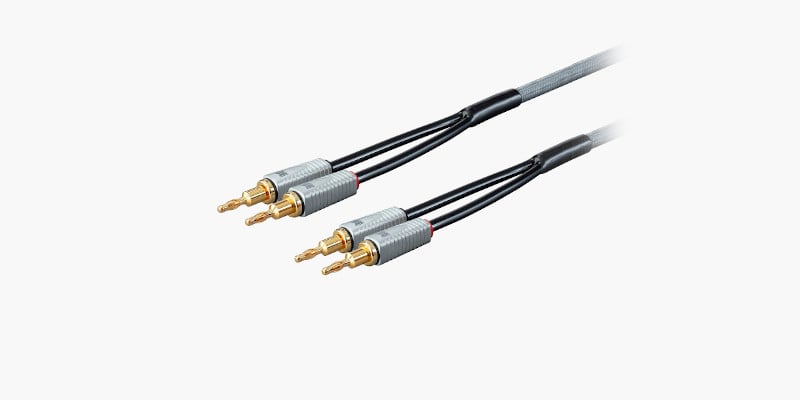
It’s good for short distances, and it’s very likely that you won’t have to stretch your wire over hundreds of feet to attach your speakers to the amp.ġ6 gauge wire does a pretty good job with low impedance speakers, as long as the distance is not too great (24-48 feet).ġ6 gauge wire is also cheaper than 12 and 14 gauge wires, which makes it even more attractive. 16 Gauge Wireġ6 gauge wire will do just fine in almost all circumstances. It’s a good choice for runs between 40 and 80 feet, as long as the power output is not too high, and speaker impedance is not too low.ġ4 gauge wire is also slightly cheaper than 12 gauge, so it might be the better choice if you are looking to save a few dollars. 14 Gauge Wireġ4 gauge wire is also a good choice for longer runs, although not as long as the ones you would use 12 gauge wire for. Keep in mind that thicker wire costs more, so if there’s no need to use it, you’ll just be wasting money. Otherwise, it might not really be necessary. In a nutshell, use 12 gauge wire if you need a long wire run or if you need heavy-duty wire. This is simply because they are more difficult to damage and will not get snapped in half if pressure is put on them. Thicker wires are also a good idea if they have to go through holes in walls or underground. The lower the load, the shorter the cable should be. For example, if the load is 8 ohm, you can use a longer cable. The distance also depends on the speakers. Ideally, it should be less than 5% of the rated impedance of the speaker.įor example, it’s advisable to use 12 gauge wire for distances between 60 and 120 feet. It should also match the impedance of the speakers. The longer the wire, the thicker it has to be. Length and speaker impedance go hand in hand, and they’re going to be the main determining factors when it comes to your choice.

The ideal thickness of your wire depends on a couple of factors:

You might think that a thicker wire is always better, but that’s not always the case. 12 Gauge Wireġ2 gauge wire is the thickest wire we have on the list here. Now that we’ve got this out of the way, let’s take a look at the most common gauges and see how you could use them in a home theater. This is especially true when it comes to home theaters and sound systems in general. The most common sizes are 12, 14, and 16 gauge, but there are many thicker and thinner wires out there-they’re just not used as much. So, a 12 gauge wire is thicker than a 16 gauge one. The lower the number, the thicker the wire, and vice versa. However, the system may be a bit counterintuitive. It’s not the only wire gauge in the world, but it’s the one used in America.Īs you might assume, the numbers refer to different sizes. We don’t use it only for speaker wires, but all sorts of wires. The American Wire Gauge (AWG) is the standard scale in America, and it’s also sometimes referred to as the Brown & Sharpe wire gauge. However, it’s a fairly simple system that we can explain in under a minute.

#SPEAKER WIRE HOW TO#
I’ll also provide some additional tips at the end of the article so you’ll know exactly what to buy.Īlso read: How to Extend Home Theater Speaker Wires Speaker Wire GaugesĪt first, you might be confused by all the different gauges. I’ll first outline how the measurement system works, and then we’ll go through each gauge to see in what situation you should use it. Read on to learn more about why you might opt for a certain gauge. Lesser than 12 gauge but more than 16 gauge Shorter distances, lower impedance speakers Longer runs, in-wall & underground cabling Here’s a quick comparison table between 12 gauge, 14 gauge and 16 gauge speaker wires: 12 Guage vs 14 Gauge vs 16 Gauge Speaker Wires For shorter length requirements, you can safely use thinner 14 or 16 gauge wires. They are required for longer runs or in-wall and underground applications to minimize losses in sound quality. But don’t worry: I’m about to dissect the matter for you and help you pick between 12 gauge vs 14 gauge and 16 gauge speaker wires.ġ2 gauge speaker wires (3.31 mm 2) are thicker than 14 gauge (2.08 mm 2) and 16 gauge (1.31 mm 2) wires. If you’re setting up a home theater for the first time, you might be confused about speaker thickness and its impact on sound quality.


 0 kommentar(er)
0 kommentar(er)
